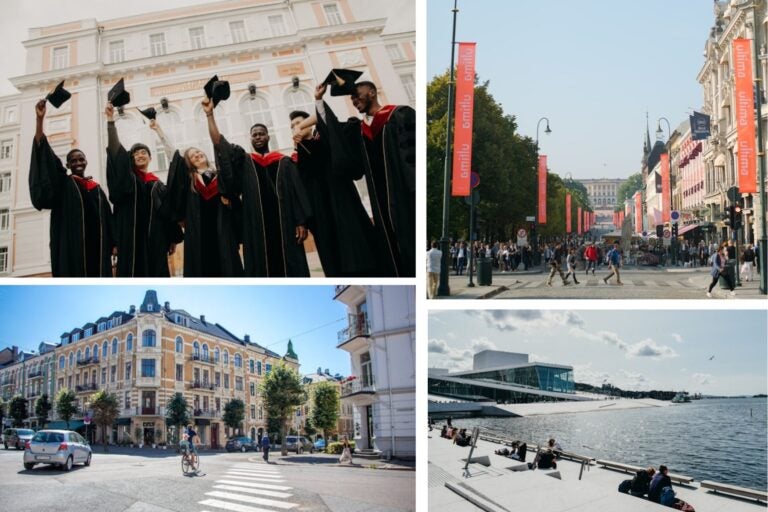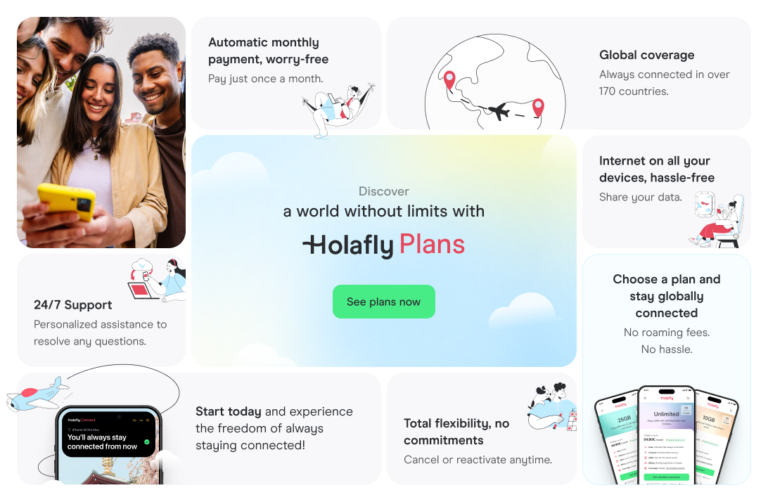Live in Norway: Advantages and disadvantages
Telecommute or study with a view of the Norwegian fjords! We tell you what it's like to live in Norway as a foreigner.
If you’re considering the decision to live in Norway, it’s important to understand what the country has to offer. In this article, we’ll explore key aspects of Norwegian life, including the healthcare and education systems, public safety, salary expectations, and overall quality of life.
Norway is known for its high standard of living, strong sense of equality, and breathtaking natural landscapes that might just make you never want to leave. Ready to explore it together?
What is the quality of life like in Norway?
Living in Norway means being part of one of the top five countries in the world for quality of life, according to the Global Social Progress Index. While the cost of living is high, it’s balanced by the government’s strong investment in top-tier public services funded through taxes. Let’s take a look at what life in Norway could really be like for you!
This is how the education system works in Norway
In Norway, public universities don’t charge tuition for Norwegian or EU/EEA students. And if you’re from outside the EU, there are still plenty of scholarships like Erasmus+ and funding opportunities offered by the universities themselves.
If you’re thinking about moving to Norway as a student, you can expect a top-quality education, experienced professors, and the chance to study at some of the country’s leading universities, such as:
- University of Oslo (UiO)
- Norwegian University of Science and Technology (NTNU)
- University of Bergen (UiB)
- BI Norwegian Business School, specializing in business

Healthcare in Norway
Like most Nordic countries, Norway has a universal public healthcare system funded by taxes. But how do you get medical care as a foreigner? If you’ve been legally living in Norway for over a year or you’re an EU/EEA citizen, you’ll have access to the National Insurance Scheme just like any local resident.
If you’re a student or digital nomad from outside the EU staying in Norway for less than a year, you’ll need to get private international health insurance to ensure full medical coverage. Here are some of the best hospitals in the country where you can receive care in English:
- Rikshospitalet – Oslo University Hospital (Oslo)
- Haukeland University Hospital (Bergen)
- St. Olavs Hospital – Trondheim University Hospital
- Akershus University Hospital (Ahus)
Is it safe to live in Norway?
You can rest easy knowing Norway is one of the safest countries worldwide, ranking in the top 20 according to the 2024 Global Peace Index. While petty crimes like pickpocketing may occur in tourist hotspots, they’re quite rare. On top of that, Norway is known for its strong protections for women, families, and gender equality, making it one of the most welcoming and inclusive places to live.
Economy and salaries in Norway
If you’ve been offered a job by a local company and are thinking about moving to Norway, go for it! Norway boasts some of the highest salaries in Europe, with an average gross monthly income around $5,500. Keep in mind that the cost to live in Norway is quite high, especially in cities like Oslo and Stavanger, but those strong wages make it possible to enjoy a comfortable lifestyle.
Norway’s strongest industries include oil and gas, renewable energy, technology, healthcare, construction, education, and research. If you’re looking for local job opportunities, roles in these sectors tend to be the easiest to find.

Is telecommuting possible with a good internet connection?
For digital nomads working remotely, having reliable internet is key. In Norway, you can expect average upload speeds around 160 Mbps, along with strong 4G and 5G coverage. Major providers like Telenor, Telia, and Ice keep you connected. Plus, Norway is highly digitalized. You can handle official paperwork online, shop through e-commerce, manage your banking digitally, and use services like the BankID e-identification system.
If you need fast, stable, and secure internet with no interruptions, Holafly has you covered. Their unlimited plan lets you use as much data as you want and connect two devices at once, for just $64.90 a month. It’s a great option for heavy users who don’t want to compromise on connection quality.
Important: If you are a frequent traveler and want to stay connected without worrying about expensive roaming or looking for a new SIM at every destination, Holafly’s subscription plans are for you. With a single eSIM, enjoy internet in more than 170 countries for a fixed price and no surprises on your bill. Travel without limits and connect easily and securely! 🚀🌍

Advantages of living in Norway
Have you made up your mind yet? We know that relocating is a big decision. It takes time to really understand what life in a new country is like and whether it fits your lifestyle. That said, sometimes you just have to take the leap. To help you weigh things up, here’s a quick look at what makes living in Norway such a great choice.
- High quality of life: You’ll earn a high salary, be surrounded by stunning natural landscapes, enjoy strong legal protections, and feel safe walking the streets.
- Impressive trips: Explore Norway’s fjords, hike through its mountains, wander along its rugged coastline, and witness the magic of the northern lights. Norway is one of those rare places where nature truly takes your breath away.
- Work-life balance: Norwegians enjoy around five weeks of vacation each year, and the short 37.5-hour workweek reflects the country’s strong commitment to work-life balance and family-friendly policies.
- Easy social integration: Most people in Norway speak English fluently, so you won’t need to know Norwegian right away to get by or connect with locals.
- Travel with your pet: Norway is incredibly pet-friendly—your furry friend is welcome in shops, cafés, and even on public transport, so you can take them just about anywhere. Most rental homes are also pet-accepting, making it easy to settle in together.

Disadvantages of living in Norway as a foreigner
Living in Norway isn’t perfect, there are definitely some challenges. Take a look at these points we’ve put together to help you get a clearer picture of life in this Nordic country.
- High cost of living: Rent, food, and entertainment tend to be pricey in major cities like Oslo, Bergen, and Stavanger. If you’re wondering where to live in Norway to save money, more affordable housing options are available outside the city centers, in places like Kristiansand, Tromsø, or Ålesund.
- Cold climate: Winters are long and quite cold, and the limited sunlight from November to February can take a toll on your mood if you’re used to sunnier climates.
- Inaccessible jobs due to language: For certain skilled jobs, like nursing, you might need to have an intermediate level of Norwegian to qualify.
- High taxes: With a VAT rate of 25%, one of the highest in Europe, taxes in Norway are very high, which can affect your finances.
- Limited products and services: You might find it a bit challenging to get certain major brands here, mainly because of Norway’s location and its relatively small population.
Frequently asked questions about living in Norway
Housing is limited in major cities like Oslo and Bergen because demand is high. It’s a good idea to start your search early and consider alternatives like co-living spaces or student residences.
Norway is generally a safe and peaceful country, but if you’re looking for the safest cities, Oslo, Bergen, Stavanger, Trondheim, and Tromsø come highly recommended.
You’ll have access to trains, buses, ferries, and rental bikes. The public transport system is known for its reliability and punctuality, so getting around is hassle-free.
Norwegian can be challenging, but it’s definitely doable. With enough time and effort, you can reach an intermediate level through the intensive courses offered here for foreigners. Most of which are free or very affordable.
It’s an ideal spot for digital nomads thanks to its tech infrastructure, coworking spaces, co-living options, and beautiful natural surroundings. It’s easy to find the right balance between working, relaxing, and meeting like-minded people.
If you’re from the EU/EEA, you don’t need a visa to work in Norway. But if you come from outside those regions, you’ll need to apply for a visa tailored to your job.





 Language
Language 


















 No results found
No results found



